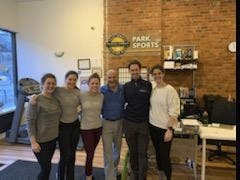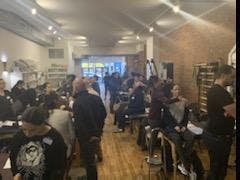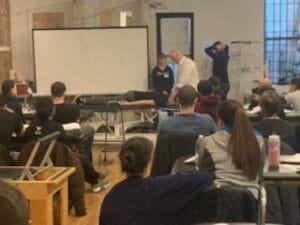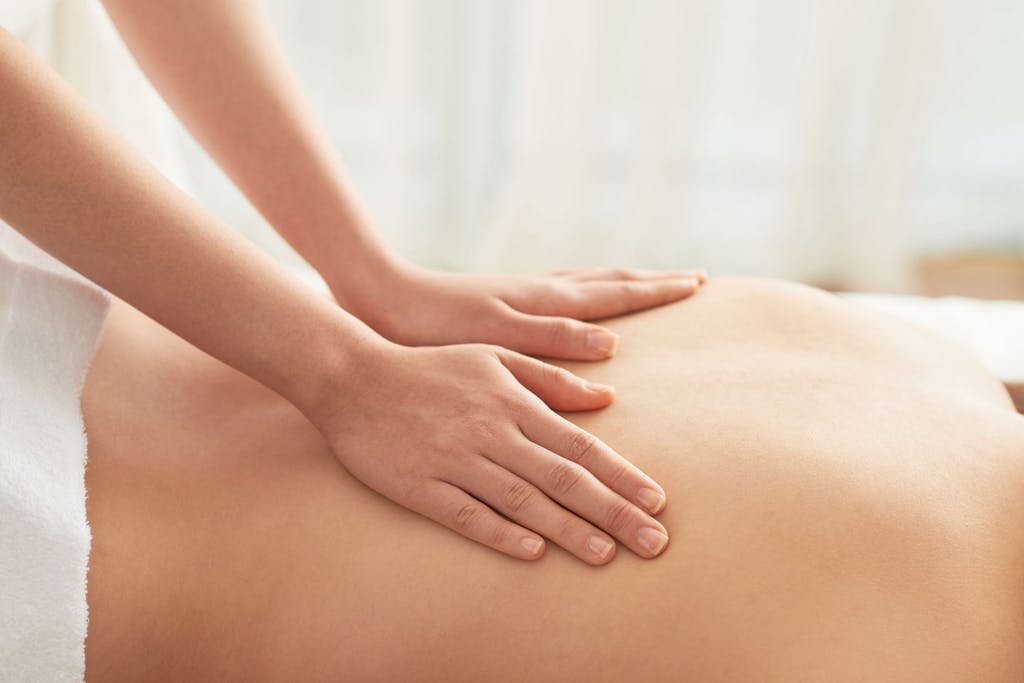We at Park Sports Physical Therapy had the privilege of hosting and participating in a wonderful manual therapy course titled The Essential Spinal Seminar. Below I am excited to share some information about the “Maitland Australian Physiotherapy Seminars” or MAPS, what “manual therapy” means in the context of physical therapy, and our experience overall.

A Little Bit About Manual Therapy, Maitland Australian Physiotherapy Seminars (MAPS), and The Maitland Australian Approach
In the PT profession, manual therapy can refer to several types of hands-on or tool assisted treatments used to alleviate pain, stiffness, swelling, and many other impairments. These interventions can range from light-handed techniques such as those often used during manual lymphatic drainage techniques, to deep pressure methods used for trigger point release, to high velocity/low amplitude thrust maneuvers used to safely elicit a “cavitation” (most commonly referred to as “cracking”), and more.
Maitland-Australian Physiotherapy Seminars (MAPS) is a leading organization dedicated to promoting research-based continuing education in the field of manual and orthopedic physical therapy, with a focus on improving the consistency, efficacy and empathy with which these manual approaches are used in clinical practice.
The course we hosted, titled the “Essential Spinal Seminar”, focuses on the assessment and treatment of our clients’ symptoms originating from the neck, upper back or thoracic spine, and lower back or lumbosacral spines. The MAPS’s “Maitland Australian Approach” is founded on the “Bio-Psycho-Social model”, which emphasizes the importance of focusing on the biological, psychological and social aspects of our clients’ chief complaints together in order to address their needs as a person, and not just the body part listed on their prescription.
Our Experience with the Essential Spinal Seminar
Prior to our first day, we spent a large number of hours over several weeks reviewing the history of MAPS and the Maitland Australian Approach, delving into many pertinent research articles discussing up-to-date nuances of modern, evidence-based manual physical therapy, and buffing up our spinal assessment and manual therapy intervention skills.
Day 1: The Low Back


We began day 1 by introducing ourselves to our fellow classmates, who included physical therapists from all over the trig-state area and clinical settings ranging from hospitals, to pediatric clinics, to other outpatient private practices. After quickly reviewing our pre-course materials and some great one-liners from our instructor, we dove straight into a hands-on assessment and intervention of the low-back (lumbar and sacral spines). We reviewed how to assess for different directional preferences, how to differentiate between symptoms stemming from nerve versus joint versus muscular concerns, and how to systematically address our findings using joint mobilization techniques.
Perhaps most importantly, we reviewed time and time again the importance of listening to our clients, addressing the impairments our clients described instead of the impairments we might expect, consistent re-assessment to ensure that our chosen intervention is having the desired effect, with a chance to change things up if things do not go as initially planned. We ended day 1 excited about the knowledge we had gained and the colleagues we had met, extremely grateful for the two patients who had so graciously given their time to serve as models, and a little hungry considering we had finished all of our free bagels by lunch time.
Day 2: The Neck and Upper Back

Day 2 consisted of similar hands-on lessons, this time focusing on the evaluation and treatment symptoms stemming from the neck (cervical spine) and mid-back (thoracic spine). Our patient model today was Genya, one of the amazing physical therapists at Park Sports’ Fulton Street location, who shared with us her story of her immovable rib. Again, we gained valuable knowledge, and Genya gained some more pain-free range with twisting and rotating her body, and Patrick bought us more bagels.

Overall, as a group we ended the seminar with a renewed sense of focus on the assessment and application of applying our manual therapy techniques, and an appreciation for the way in which the Maitland Australian Approach emphasizes individualizing treatment to the client’s specific needs (biological, psychological and social). We felt empowered by our new knowledge, and have already begun implementing these powerful skills within our offices with clinically significant results. Feel free to ask us about our experience and any questions you may have.
.png?auto=format&auto=compress&h=150)
